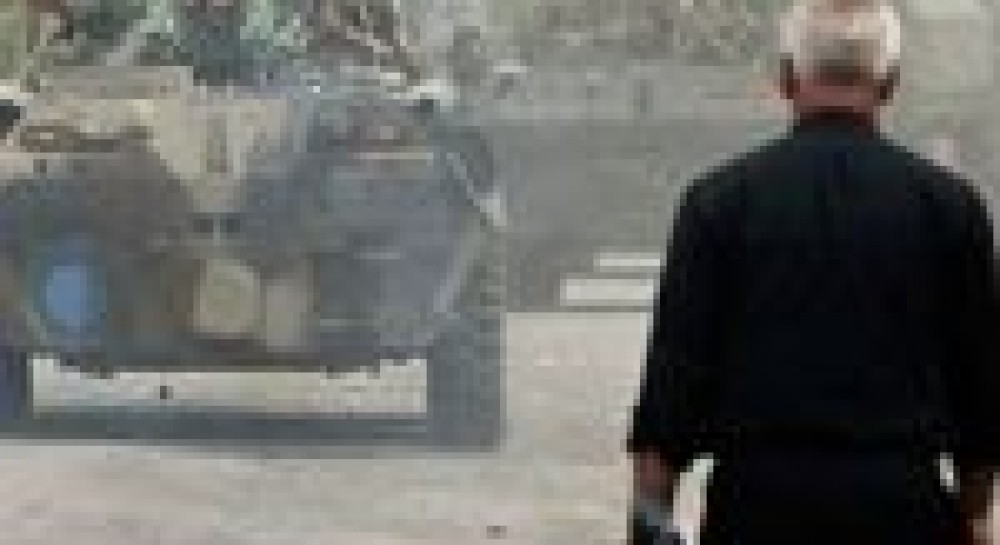
Ukraine risks wrath of Russia as Yushchenko sides with the West
Many Ukrainians fear they could be next to face the force of a resurgent Russia seemingly bent on avenging the disintegration of the Soviet empire...
Nato foreign ministers kept alive the hopes of Georgia and Ukraine yesterday that they could eventually become members of the military alliance. But even without the provocation to Russia of a clear timetable for either country to join, many Ukrainians fear they could be next to face the force of a resurgent Russia seemingly bent on avenging the disintegration of the Soviet empire.
Ukraine had mastered a skilful balancing act since independence in 1991, courting the West while at the same time trying not to overtly offend Moscow.
But, with the outbreak of conflict in Georgia, the Ukrainian President, Viktor Yushchenko, seemed to make what, to many fellow countrymen, looks like a suicide leap off that tightrope. He went to Tbilisi to show support for Georgia, ordered restrictive new regulations for the Russian Black Sea Fleet based in Ukraine`s Crimean peninsula, and offered Ukrainian co-operation in a Western missile defence system despite the knowledge that neighbouring Poland received a chilling warning from Russia for agreeing to allow deployment on its territory of elements of the US missile defence shield. For the first time since independence, Ukrainian television has aired discussion of possible conflict with Russia and even politicians considered to be pro-Moscow have begun warning that Ukraine could be next in the firing line.
"If the West swallows the pill and forgives Russia the Georgian war, the invasion of `peacekeeping tanks` into Ukraine will just be a matter of time," Oleksandr Suchko of the Kyiv-based Institute for Euro-Atlantic Cooperation, said.
Russia has never completely reconciled itself to Ukraine`s independence which Moscow viewed as an affront to the vision nurtured by Vladimir Putin, of Russia restored to its former might. Ukraine humiliated Mr Putin in 2004 when millions joined in demonstrations that became known as the Orange Revolution to overturn the results of a presidential election rigged in favour of a pro-Moscow candidate.
Almost all of Ukraine`s vital gas supplies come from Russia and Russia has tried to punish Ukraine by enormous price increases in gas and even turning off supplies. Moscow`s attempts to install a pro-Moscow government are, to a large extent, governed by its desire for absolute control over the pipelines that are responsible for most of its wealth.
But Ukraine`s last census showed that 17 per cent of the country`s population of around 47 million were ethnic Russians. Most of those are concentrated in Ukraine`s east and south and Moscow has persistently backed Russian groups there which pine for past days of rule from Moscow. Crimea is the only part of Ukraine where ethnic Russians outnumber Ukrainians and its port city of Sevastopol is home to the Russian Black Sea Fleet.
The peninsula is a tinderbox and many have already tried to start a fire. It was from Sebastopol that Russian ships sailed to shell and land invading troops in Georgia last week. Mr Yushchenko said the use of Russian ships for war violated Ukraine`s neutrality and risked drawing it into conflict. Now Ukraine is insisting that the Russian fleet must leave when its lease expires in 2017.
Ukraine`s first president, Leonid Kravchuk, who negotiated the terms of the Sebastopol lease under heavy pressure from the Kremlin, doubts that Ukraine`s small navy could prevent Russian ships from returning. "How do you prevent the Russian ships from coming in?" he said. "I don`t know of any way to do so. If we continue to stick to the point of view of `not letting them in,` this will mean a war between Ukraine and Russia."
Ukraine had already angered Moscow five years ago when, under the nominally Russian-friendly presidency of Leonid Kuchma, the country applied for Nato membership. Although most Ukrainians want to join the EU, they are deeply divided over whether their country should join the military alliance and many see Mr Yushchenko`s robust rhetroic on Nato as an attempt to win back nationalist votes ahead of 2010 presidential elections. Yet many Ukrainians also believe that the French and German-led opposition to a concrete timetable for membership at the Nato summit held in Bucharest in April encouraged Russia`s current aggression.
During the 2004 Orange Revolution, pro-Russian politicians brought the country to the brink of civil war by threatening to split the country into the half that leaned towards the West and Nato membership and an eastern portion where most want to attach themselves to Moscow.
A Russian military analyst, Pavel Felgenhauer, believes Ukraine could be next on a Russian expansionist agenda. "Russia right now wants at least half of Ukraine to be annexed," he said.

